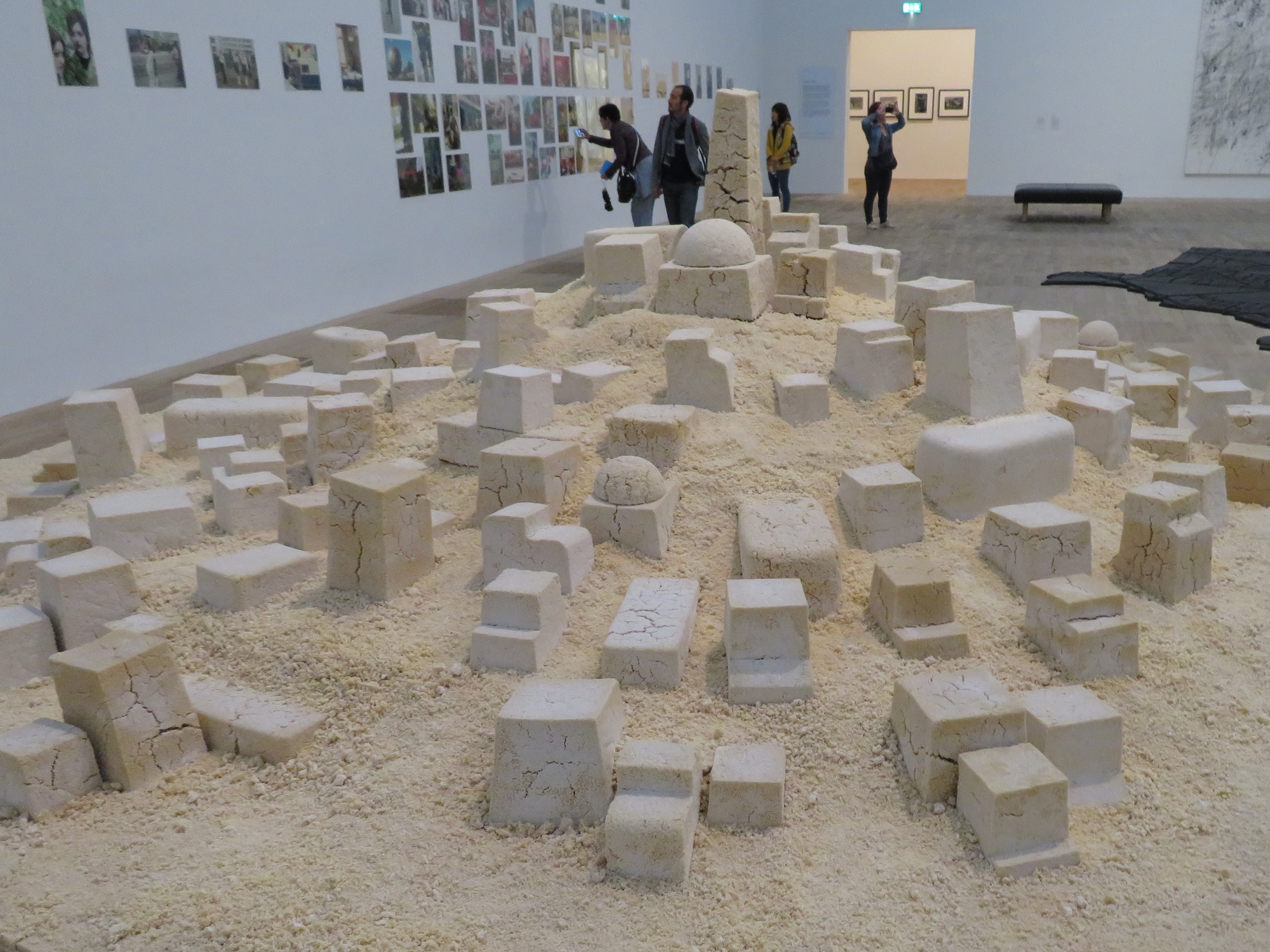Difference between revisions of "Living in the City"
From Londonhua WIKI
(→Overview) |
(→Julie Mehretu) |
||
| Line 32: | Line 32: | ||
==Julie Mehretu== | ==Julie Mehretu== | ||
| + | Julie Mehretu's works at the gallery is called the Mogamma. The Mogamma is a the government building in Tahrir Square in Cario, which formed a backdrop for the protects against Hosni Mubarak's regime in early 2011. Mehretu has overlaid architectural drawings of the Mogamma with those of other locations associated with public unrest, including Addis Ababa's Meskel Square and New York's Zuccotti Park, the site of the 'occup' protects. Using digital images and projecting them onto the surface of the canvas, Mehretu complicates the drawn plans so that we can no longer see them clearly. The resulting painting could be seen as a memorial to collective sites of communal resistance. | ||
<br> | <br> | ||
Revision as of 13:02, 15 May 2017
Living in the City
 Model of ancient Algerian city of Ghardaïa | |
| Kader Attia | |
|---|---|
| Artist | Attributed to Kader Attia |
| Year | 2009 |
Overview
This gallery goes through and highlights city life all around the globe during the 1970s. Galleries include black and white photographs of different city lifestyles, images of Soviet Russia, a model of an ancient city, and two large pieces of art hanging on opposites side of the wall.
Contents
Sirkka-Liisa Konttinen
Boris Mikhailov
Kader Attia
Mark Bradford
Julie Mehretu
Julie Mehretu's works at the gallery is called the Mogamma. The Mogamma is a the government building in Tahrir Square in Cario, which formed a backdrop for the protects against Hosni Mubarak's regime in early 2011. Mehretu has overlaid architectural drawings of the Mogamma with those of other locations associated with public unrest, including Addis Ababa's Meskel Square and New York's Zuccotti Park, the site of the 'occup' protects. Using digital images and projecting them onto the surface of the canvas, Mehretu complicates the drawn plans so that we can no longer see them clearly. The resulting painting could be seen as a memorial to collective sites of communal resistance.